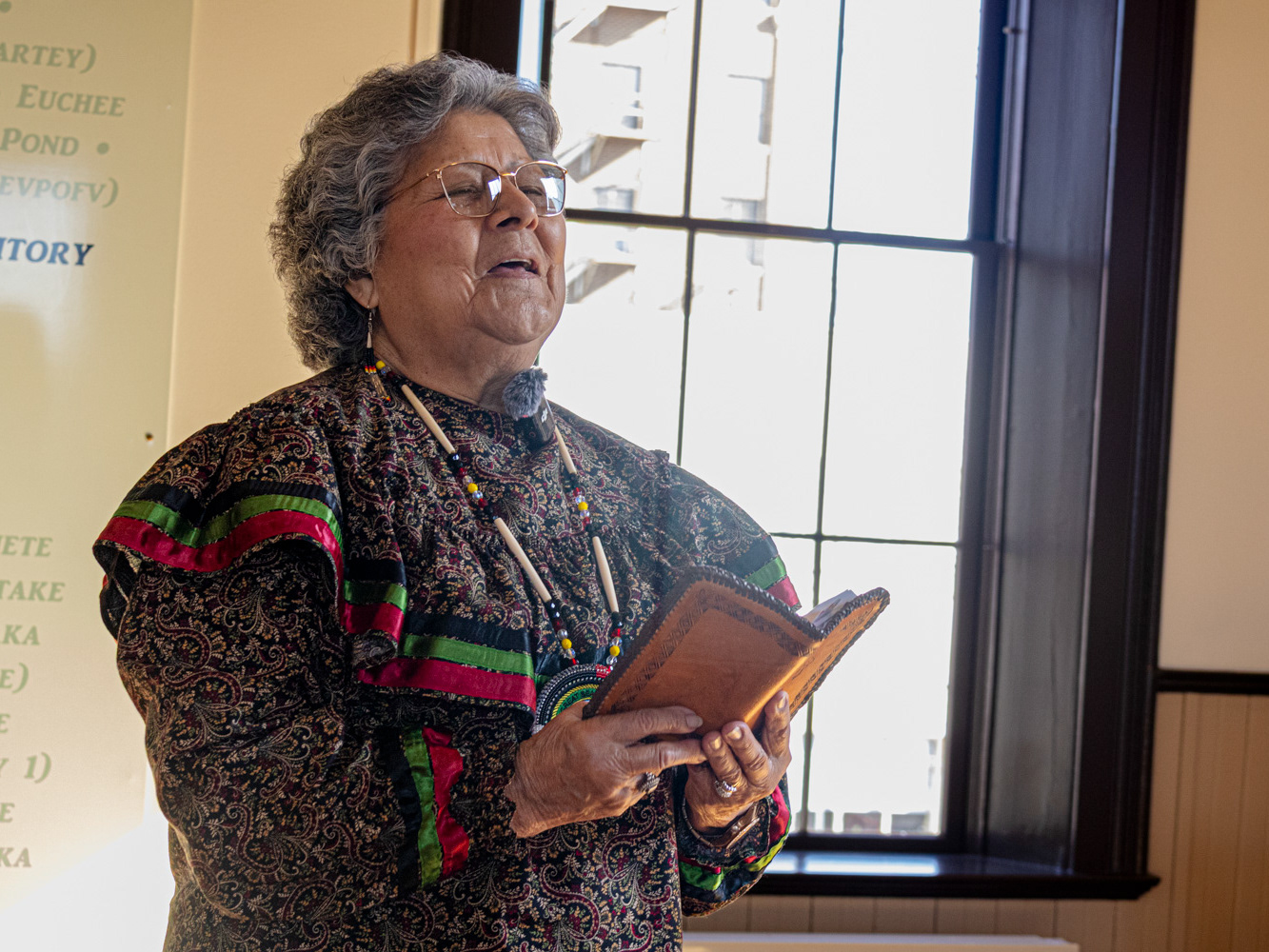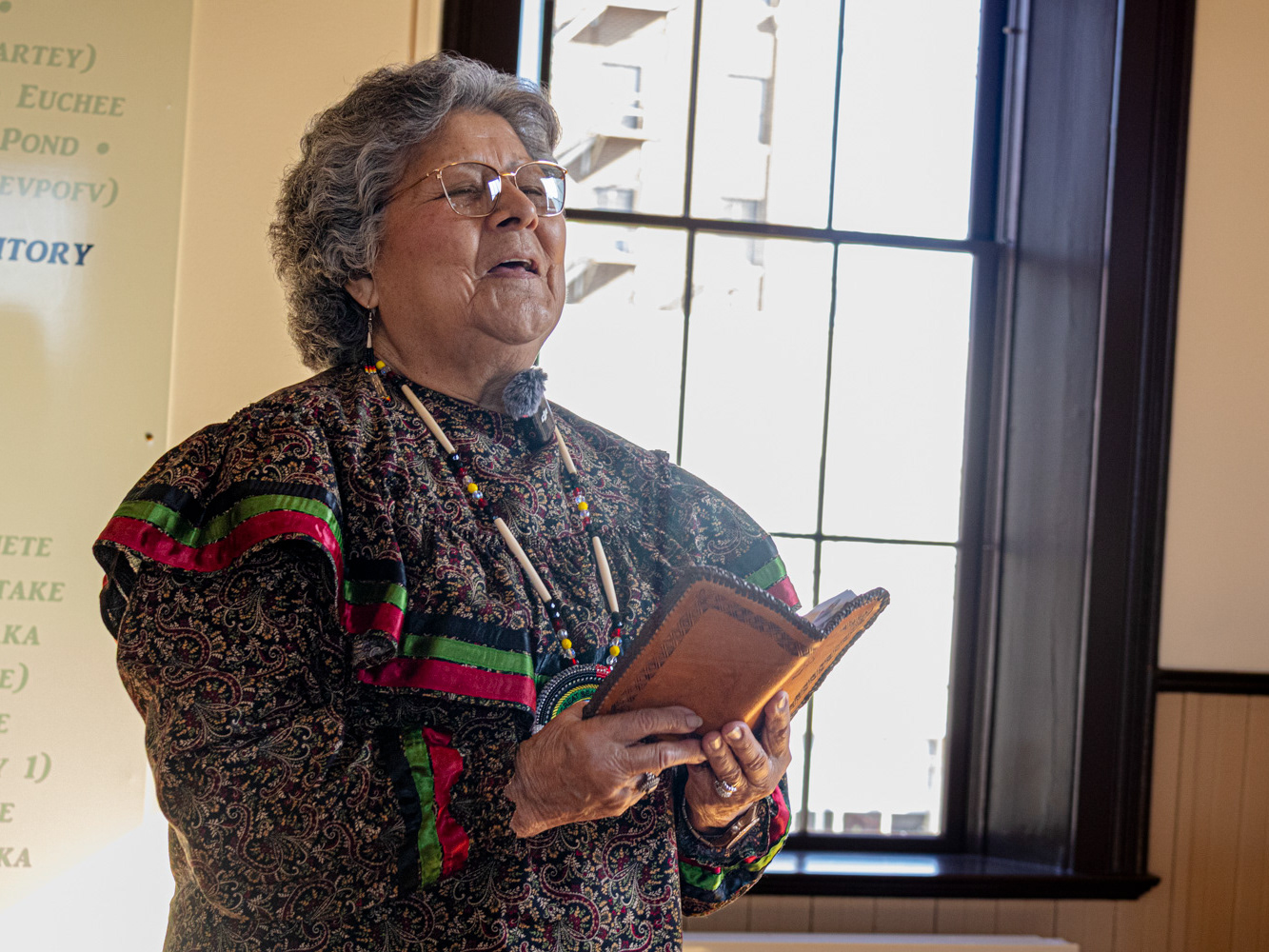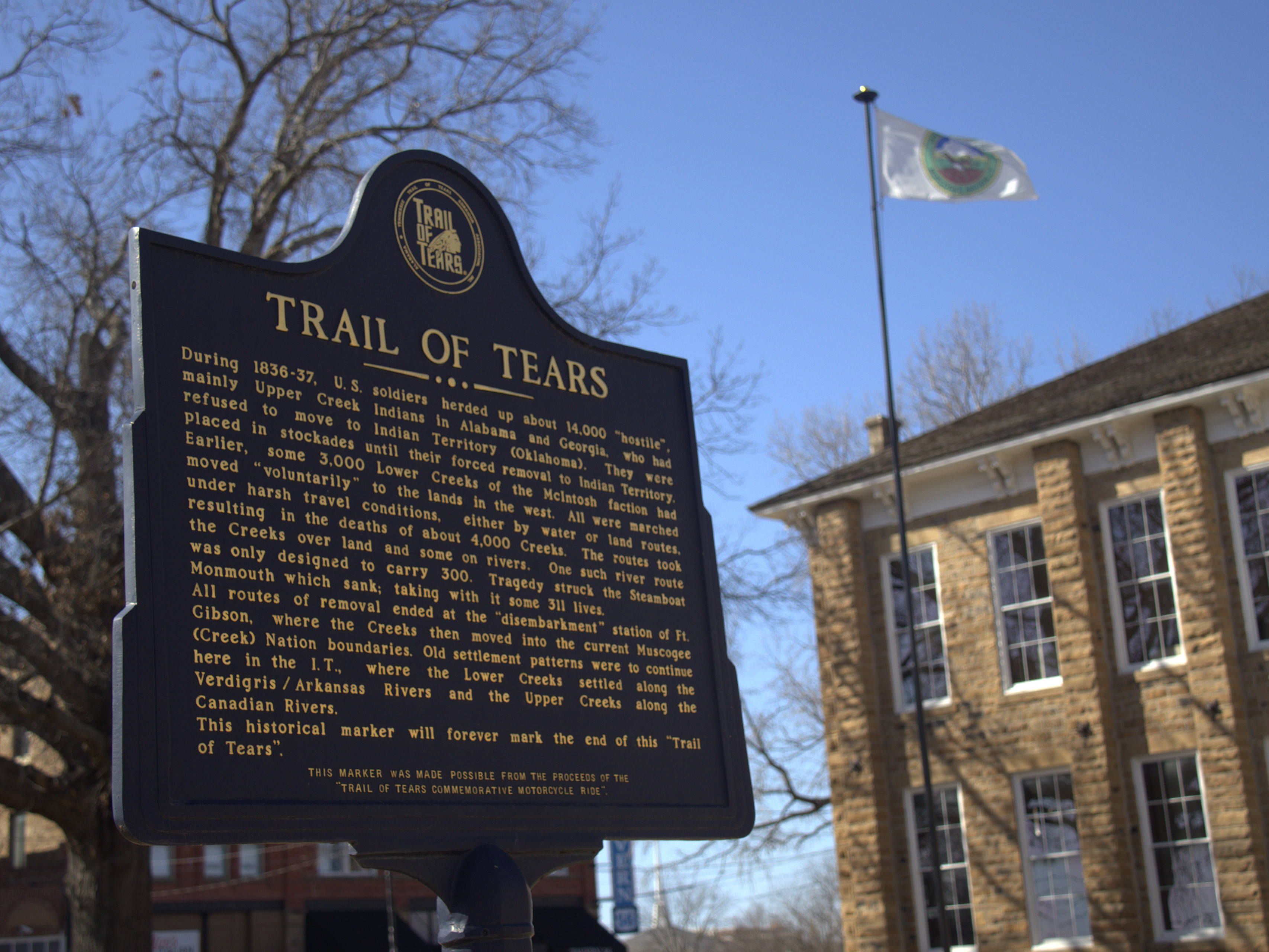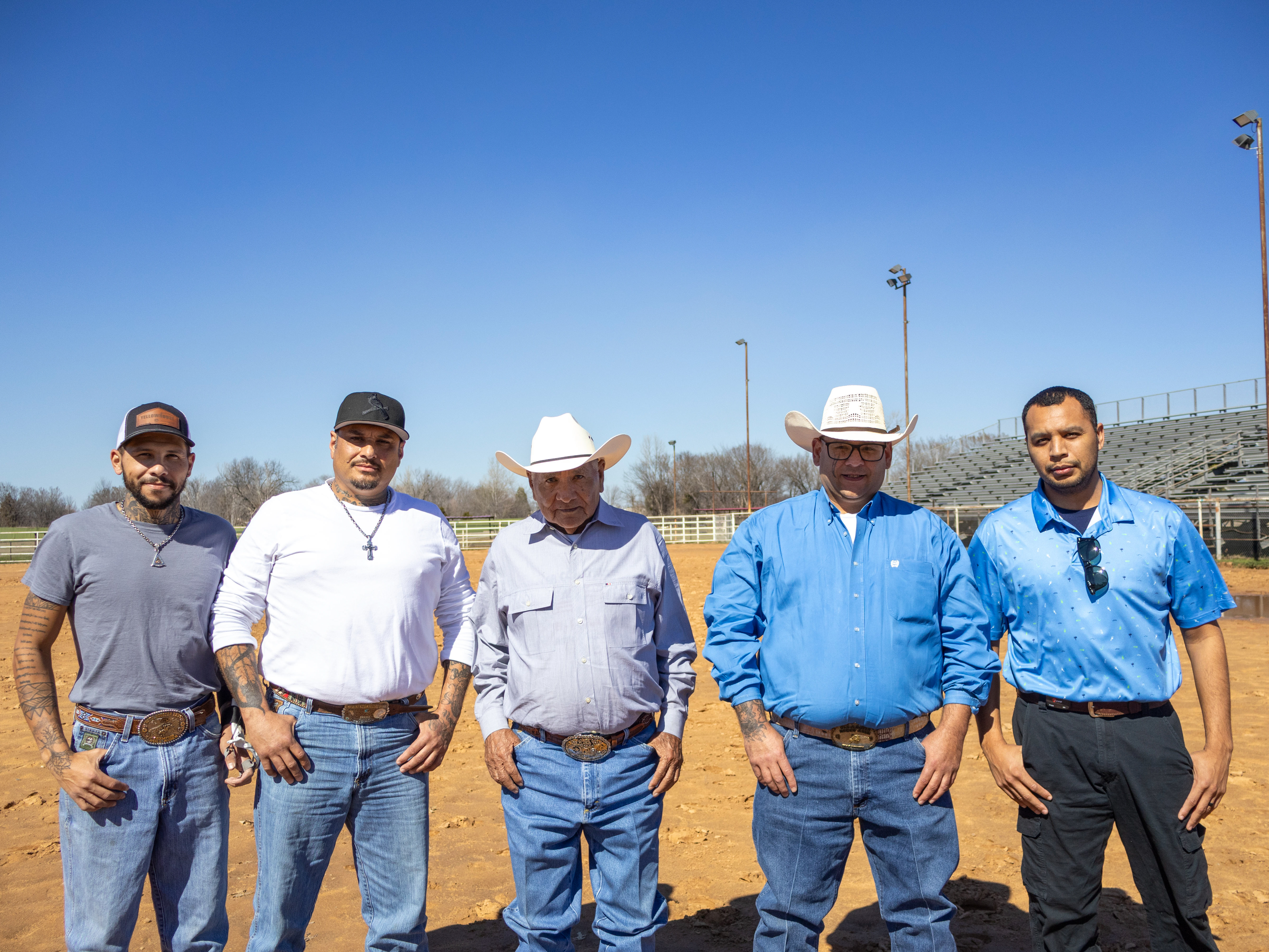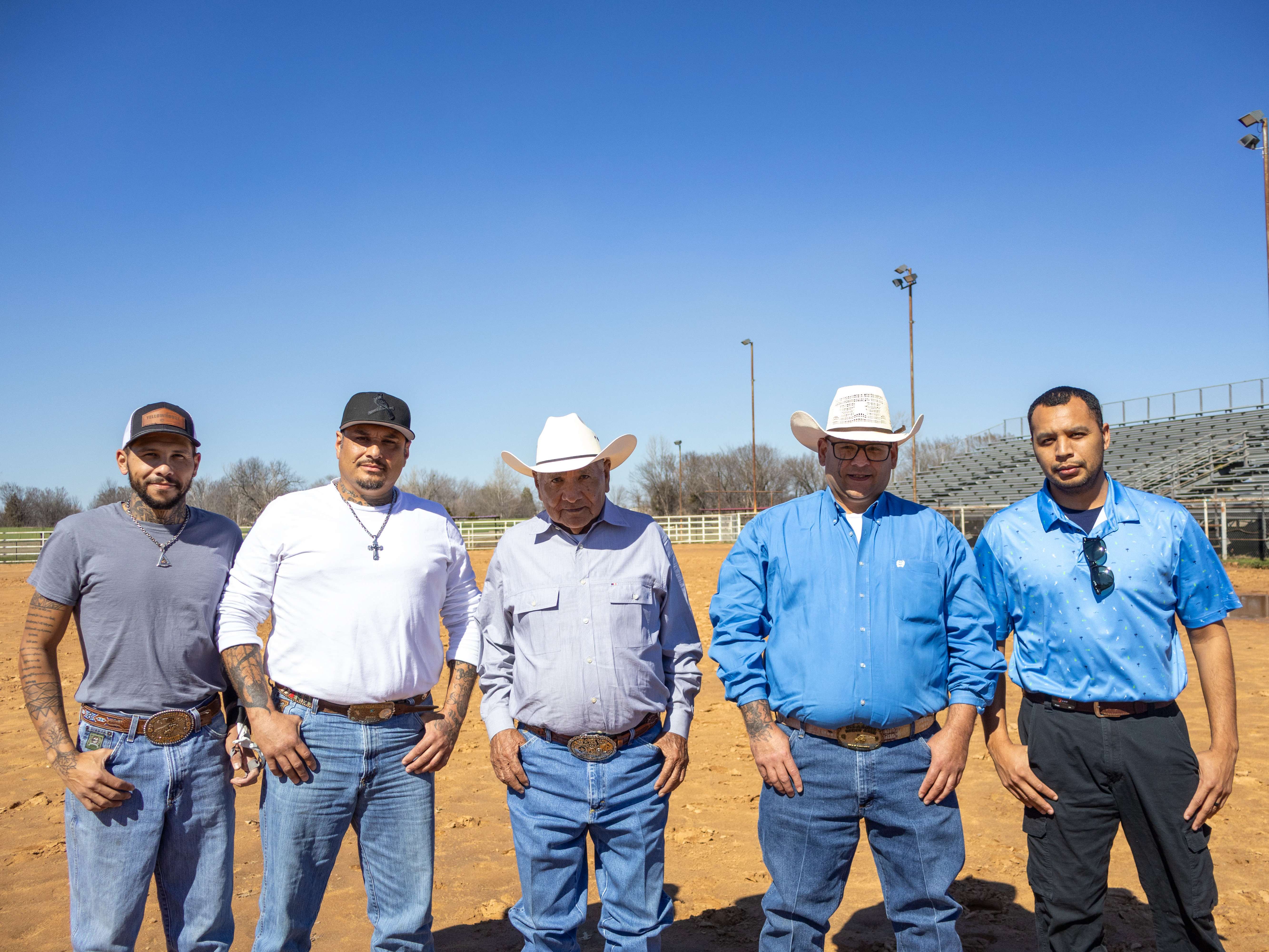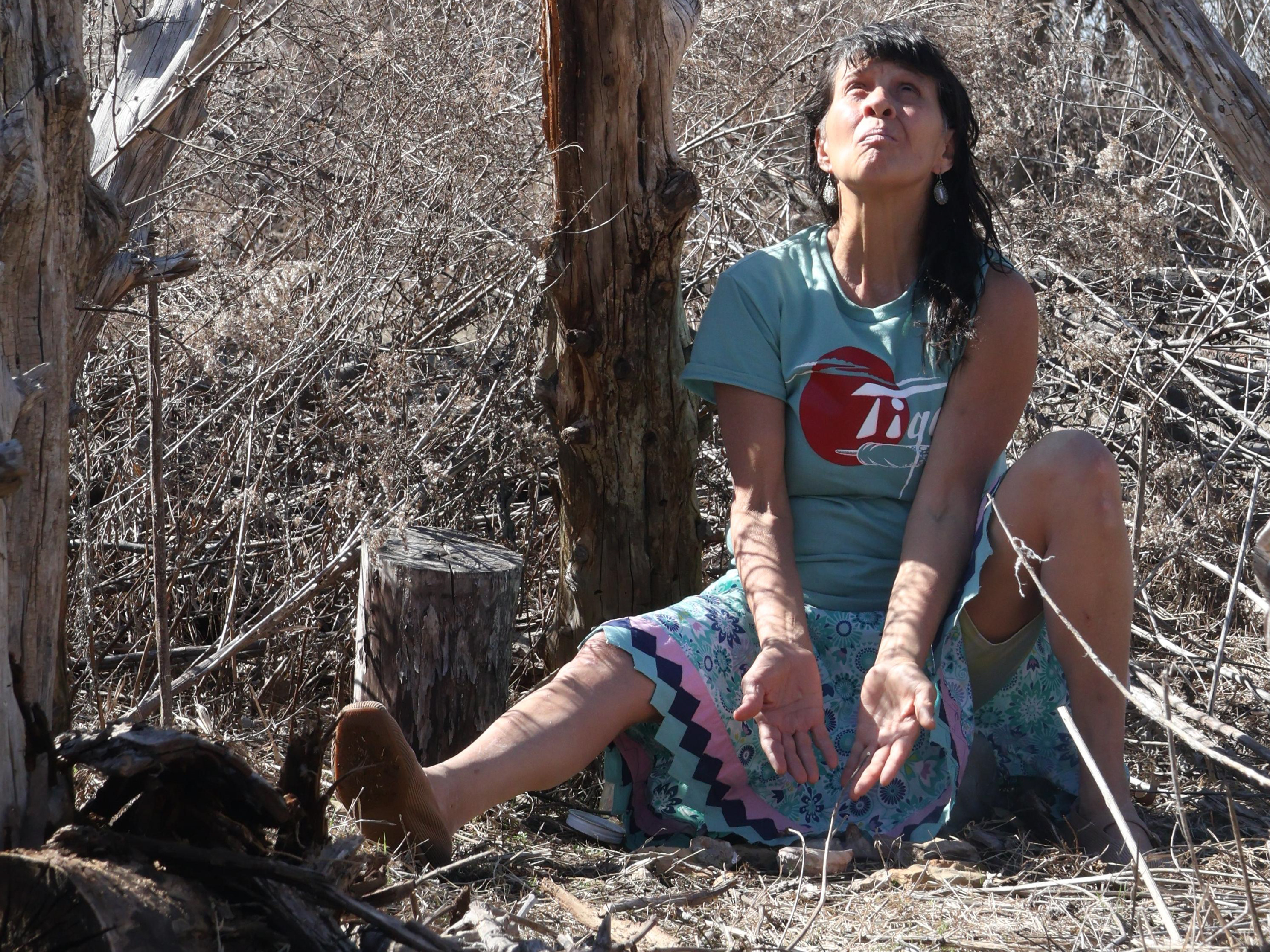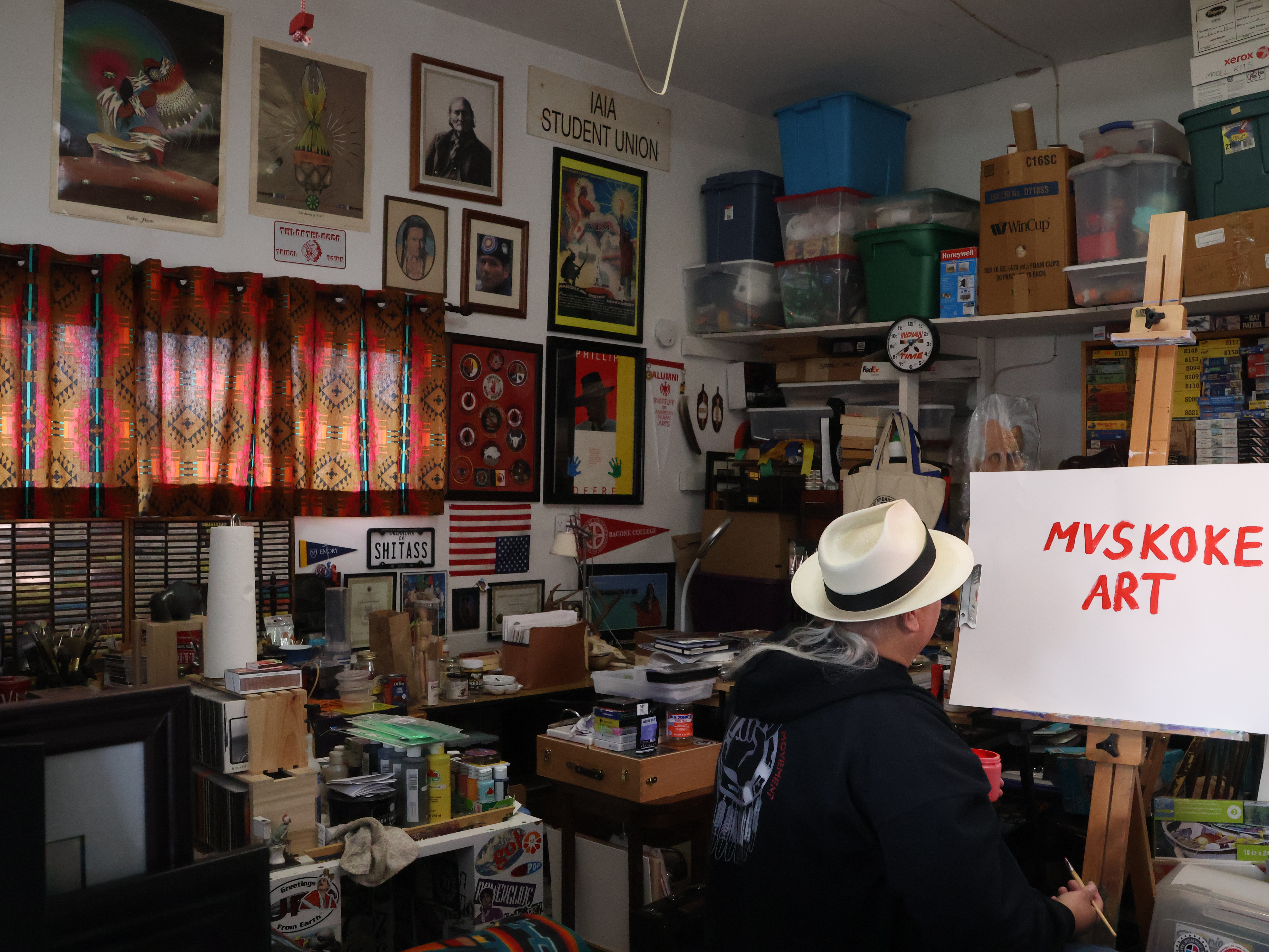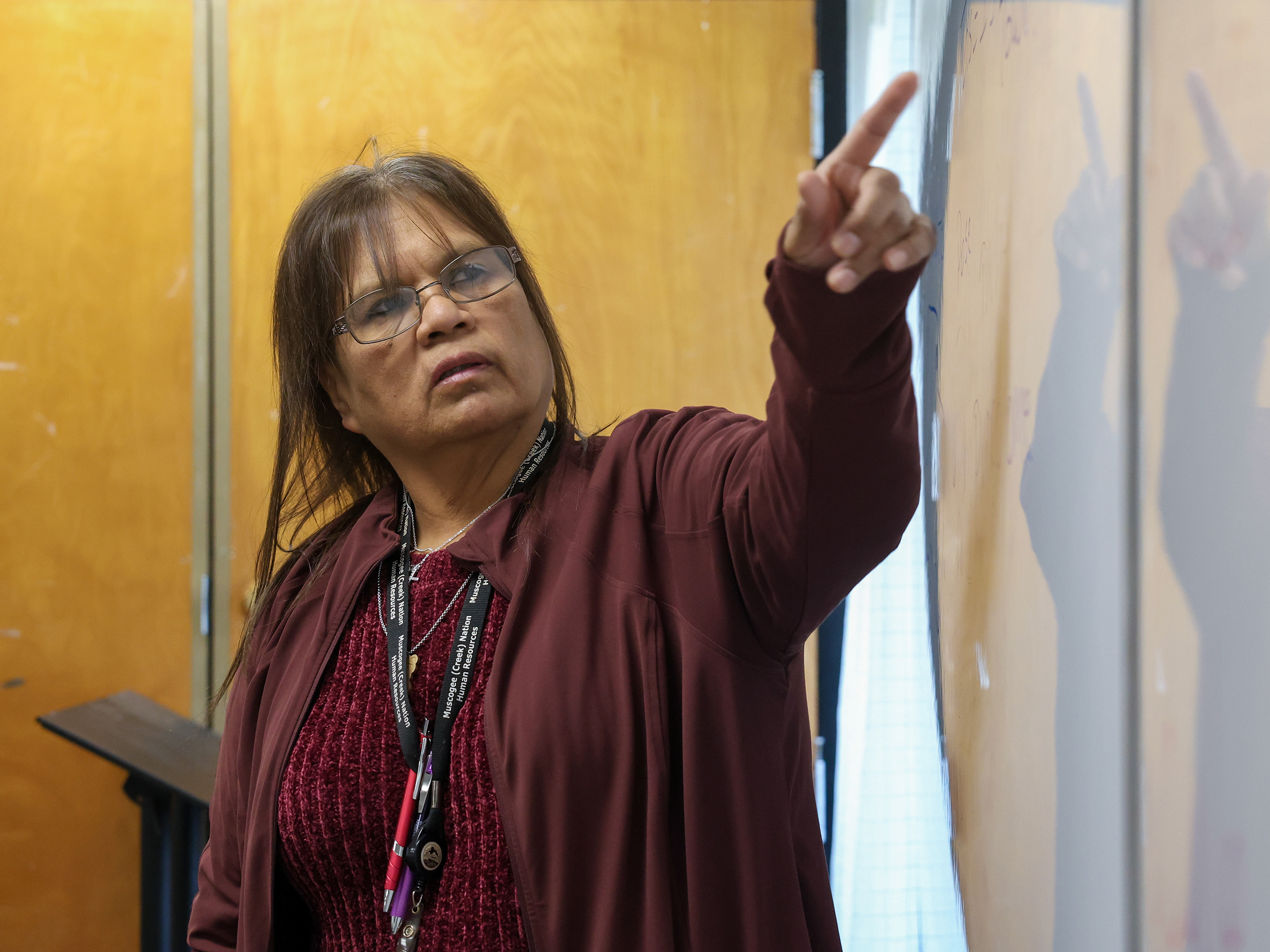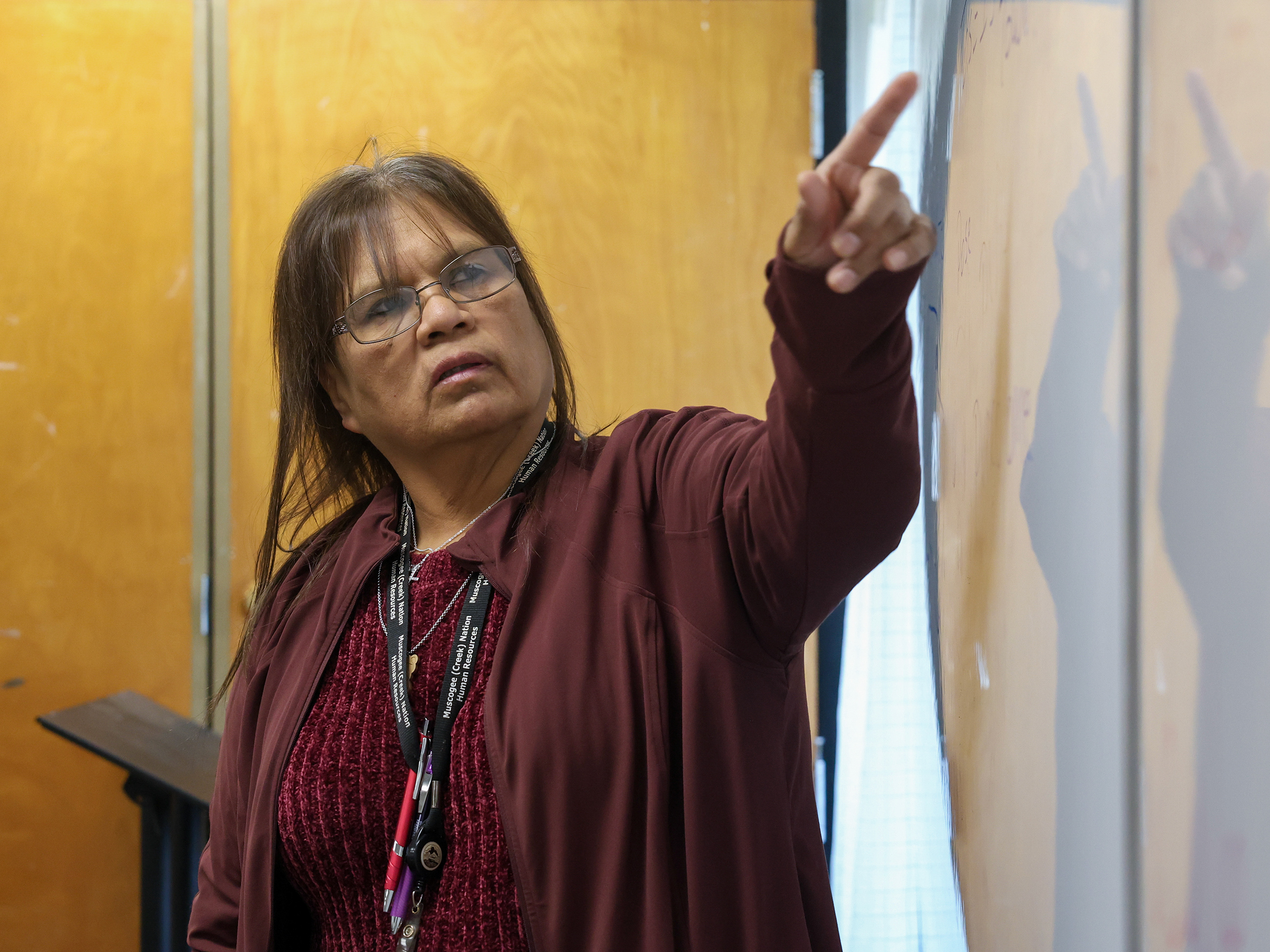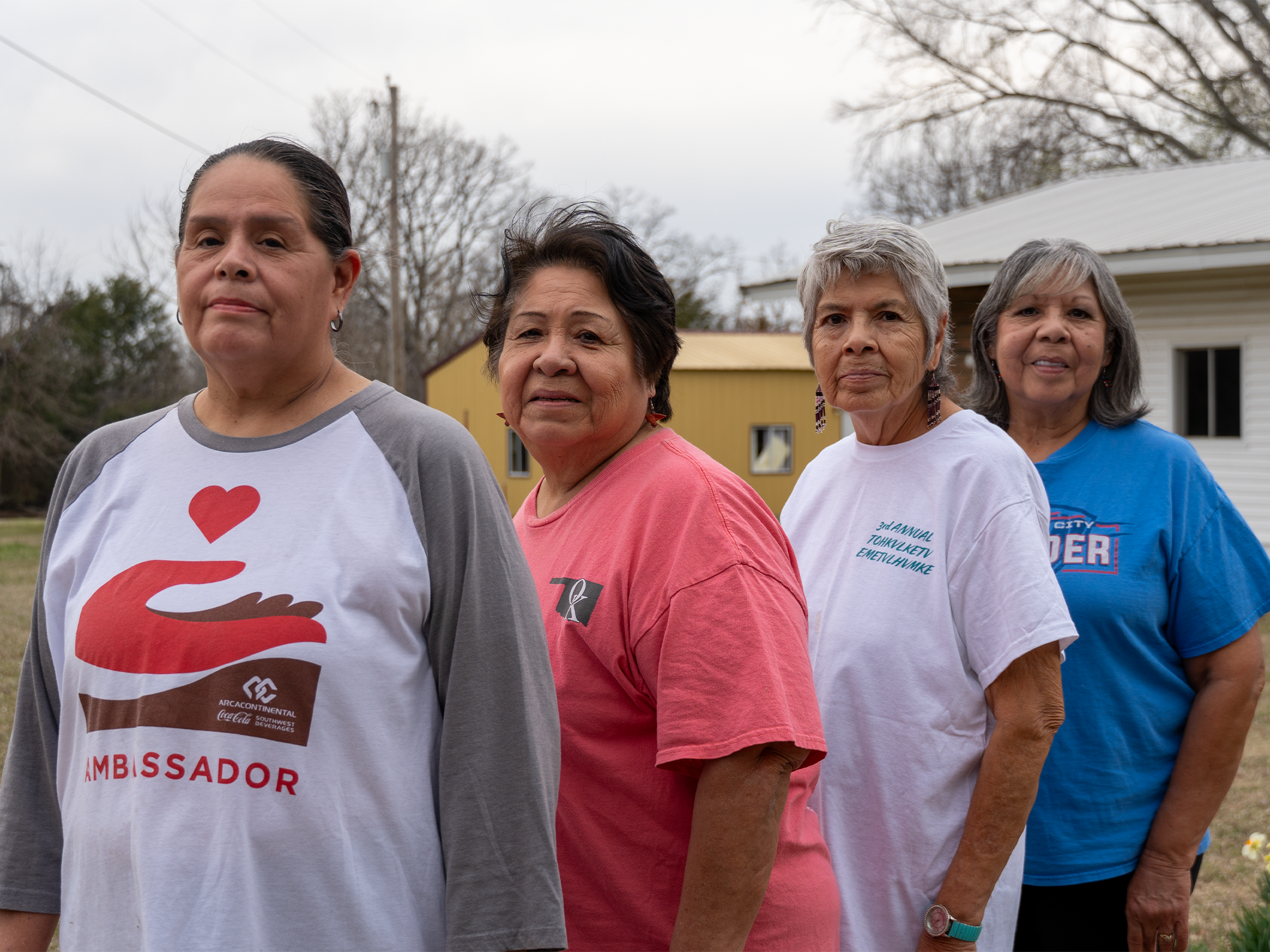Consenna Allen, 44, has spent eight months in the Muscogee (Creek) Nation residential reintegration program. His first time, in 2021, resulted in his relapsing on drugs and getting treatment for substance abuse disorder. He currently works as a fiber optic lineman – training he received at the reintegration center.
He said individuals must make the choice to better themselves.
“There are people who want to change but don’t want to take that chance,” Allen said.
For Battiest, Native Wings is about more than survival — it’s about thriving. His hope is to reconnect native people with their culture, identity, and communities.
“Life put me where I needed to be,” he said. “Now, I’m here to help others find their way back to the circle they were missing.”
As the smoke cleared out from the smudging, Melvin Battiest and Tammeria Battiest announced to the group that the nonprofit’s funding had nearly depleted for the year.
“Until we get more funding, we will be closed on Fridays to save on costs,” she said, as clients listened intently. “But if you need anything, don’t hesitate to reach out.”
On April 23, Native Wings was notified that the U.S. Department of Justice had frozen all grants, funds that they were waiting on.
“We have nothing coming in right now,” Tammeria Battiest said. “Everybody is scrambling. We got this phone call at 8 last night that they terminated our grants.”
Despite that lack of cash flow for Native Wings, Melvin Battiest still remains hopeful.
“We’re gonna keep working with our native brothers and sisters that are released,” he said. “We’ve got resources we can send them to.”
